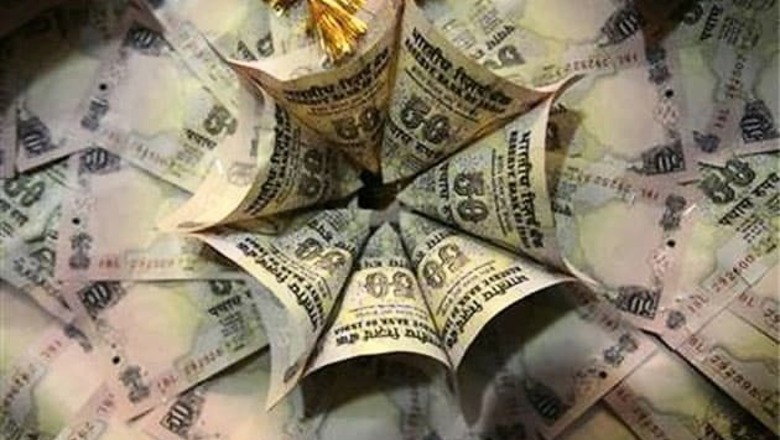
views
Mumbai: The steep fall in rupee may put some inflationary pressures on the economy as the cost of imports will go up, experts said on Thursday.
"Though crude prices have been falling in recent past, decline in the rupee is offsetting its positive impact. I feel, the current spate of depreciation of the rupee is somewhat inflationary due to rise in import costs," Crisil Chief Economist DK Joshi said.
The rupee, which touched a life-time low of 54.50 against the dollar on Wednesday, has lost over 22 per cent year-on-year on the back of falling capital inflows owing to the euro-zone problems coupled with structural issues faced by the domestic economy such as record high current account deficit and rising fiscal deficit.
Joshi, however, said softening of global commodity prices will be crucial to determine the import cost for the country in the near future.
Deloitte India senior director Anis Chakravarty also agreed saying though the depreciating rupee may not impact inflation numbers directly, it will have an indirect impact.
"Inflation is more driven by domestic factors than the rupee value. However, rupee depreciation will worsen the current account deficit position, which is at 4 per cent of GDP as of now," he said.
Chakravarty also said steps like hike in petrol and diesel prices to bridge the rising fiscal deficit numbers will influence inflation numbers.
The experts also pointed out that decline in the rupee will worsen the trade deficit situation, which has grown to $184.9 billion in 2011-12 against $118 billion in the previous fiscal.
"Though currency depreciation will not have any immediate impact on inflation, it will negatively influence other economic parameters," Brickwork Ratings Director D Ravishankar said.


















Comments
0 comment